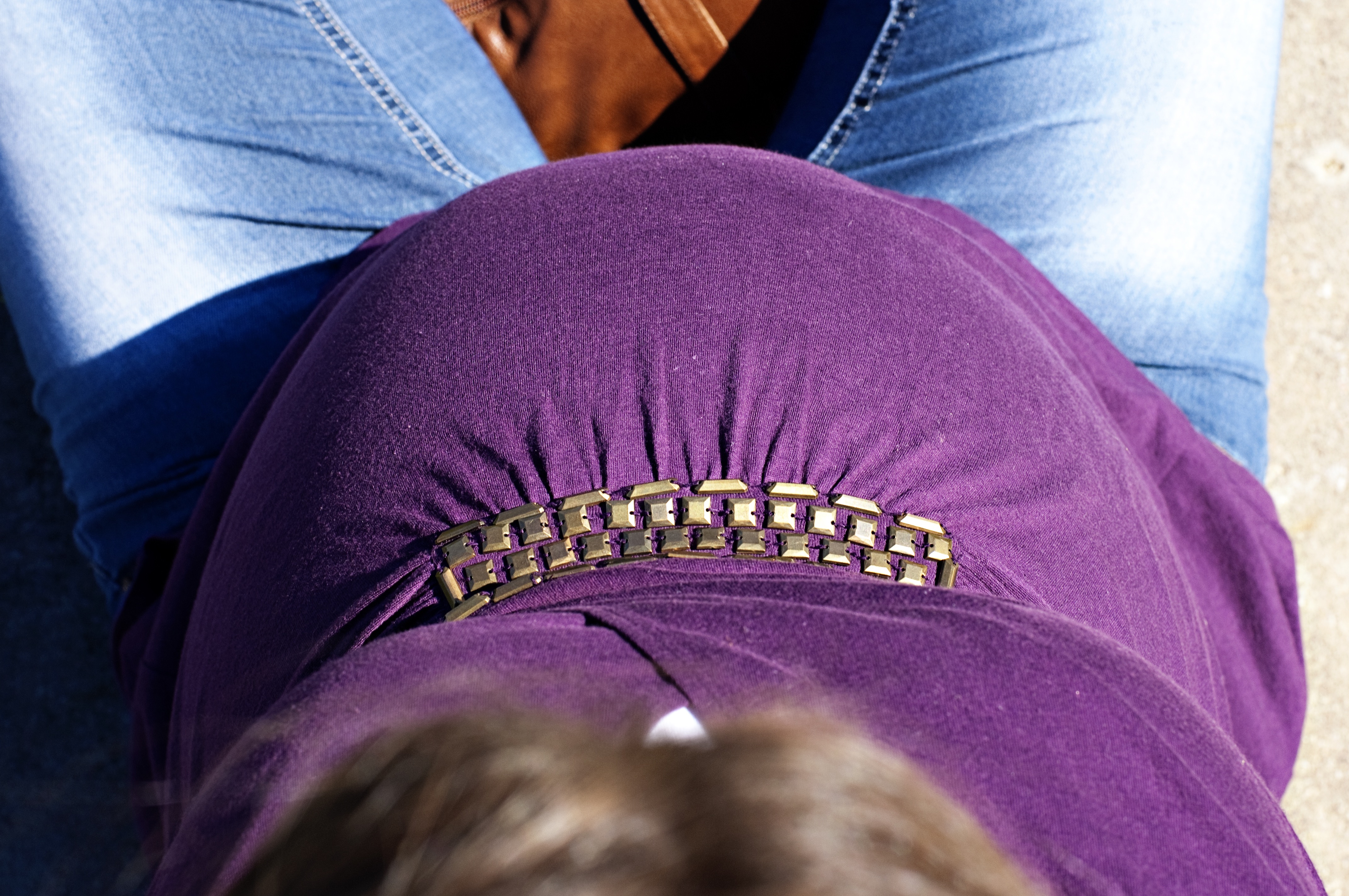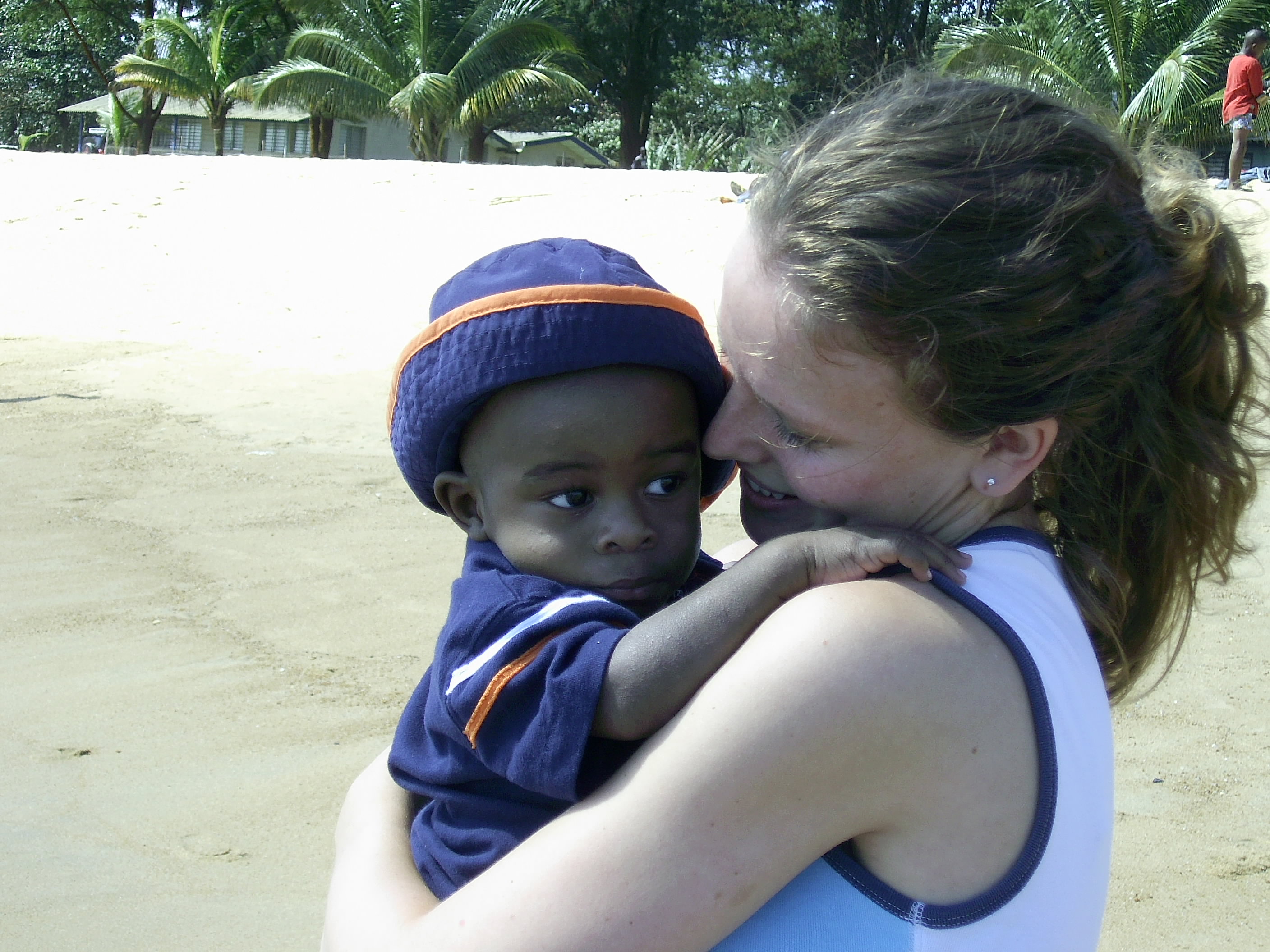I have four children who were adopted and two that were born to me. I became a mother to three via adoption before having my first biological child. During my pregnancy I wondered if birth would make me feel differently about my child. I wondered if my feelings for him would be stronger than for my other kids. I wondered if I’d feel like more of a mom if I finally experienced pregnancy, birth, and breastfeeding. In short, I wondered and worried about all the things I knew a “good” adoptive mom wasn’t supposed to think about.

Photo by Rebecca Tredway Photography
These are all thoughts adoptive parents are supposed to pretend don’t exist. But even if I didn’t want to wonder about them, they became the focus of a lot of conversations with curious friends and strangers. And it wasn’t even in a rude way (most of the time). After the birth of my son, people wanted to know how it felt and if it was different. They would ask it in the nicest way possible by saying things like, “Wasn’t it amazing to have that baby placed on your chest? There’s just nothing like it in the world.” The followup conversations would reveal that the implication was NOW I was a mother and really knew how phenomenal motherhood was. The reality is that there IS nothing like that moment in the world. But after having experienced it, I came to realize that it wasn’t more special or wonderful or precious than the moment my kids were declared part of our family in a courtroom after a lengthy fostering process. Or the moments I first set eyes on their sweet baby faces when they were placed in my care. It was different, but not somehow more meaningful or real.
I can see why people assume birth is such a moving, mountaintop experience. It isn’t just the birth experience, it’s what that experience accomplishes. For the vast majority of mothers, in that beautiful, messy, exhausting moment you went from being Not A Mom to being A Mom. There is no other experience like that on planet earth, especially for a woman who has desperately longed for motherhood. I think because that experience is so powerful, we assume it must be related to the birth process. Surely a woman who hasn’t experienced that must be missing something when it comes to the full experience of motherhood.
But a hospital room wasn’t the place I went from being not a mom to becoming a mother. For me, that happened in a West African orphanage office. I was handed a baby boy I had waited for and prayed for and travelled halfway across the world to meet. In that moment, he claimed me as his mother. He looked at me with wide eyes and silently accepted my love. I wept as much as any mother in a delivery room has ever wept with joy over the first sight of her baby son. He made me a mother in every sense of the word and my world has never been the same.
As much as I love all my children equally and each of their additions to our family has been so beautiful and special, there is nothing that can compare with the transition to becoming a mother. The emotional moment when your world changes and the dream of parenthood comes true. That only happens once and I think it has little to do with the child and much more to do with our own perceptions of ourself. This is a rite of passage and forever alters how we see ourselves and the world around us.
Birth doesn’t do that to us. Motherhood does.
I can imagine that maybe this creates confusion for women who experience adoption after having given birth. Maybe it doesn’t feel the way they thought it would to adopt. Maybe nothing recreates that mountaintop experience of having a baby placed on your chest, but maybe that has nothing to do with how you feel about this child, your ability to mother them well, the potential you have for a bonded and beautiful relationship. Maybe it’s just because you are already a mom. Nothing can take away from that and nothing adds to it.
So in case you’re wondering, I don’t feel differently about the children I am biologically related to. When I first set eyes on my biological children I felt the same love and wonder and excitement as I did the first time I saw my adopted and foster children. They were all strangers to me, but I was so excited to get to know them. The love I have for them, the joy I feel about their lives, the excitement I have about their futures– these things are the same for all my children. Birth did not somehow make me feel more empowered to parent or create a stronger attachment for my biological kids. It was a beautiful (and terrifying) experience, but it didn’t make me a mother. Adoption did that. My firstborn son did that.
Giving birth answered those questions for me, the ones I had been wrestling with for years. Yes, birth is special, but it isn’t a different kind of motherhood and I didn’t become a different mother after experiencing it. Birth taught me that adoption isn’t some second-class version of motherhood. Adoption isn’t the “easy way out” so you can avoid childbirth. Adoption makes you work and struggle in so many ways that giving birth actually felt much more simple than all we went through for our adoptions.
For women who may never experience childbirth, I fully support you grieving that loss. It is a meaningful moment and I know it can feel isolating to be denied inclusion into the childbirth club. It isn’t what makes you a mother, but that doesn’t mean you aren’t allowed to be sad that you can’t experience it.
For women who adopt after giving birth, if it isn’t the high you expected it to be or you struggle to know if you can attach and bond, I want to encourage you that it may not feel the same as giving birth and that’s okay. What you experienced in that moment was unique and adoption comes with its own unique joys, too. Allow yourself to enjoy the ways this is different and don’t be uncomfortable with that. Acknowledging that the experiences of giving birth and adopting are different does not mean the love you have for your children is different in a negative way.
I’m glad I’ve experienced both ways of meeting my children mostly because it confirmed what I long suspected– the way you meet your child doesn’t determine your relationship with them.


4 Comments
Leave a reply →